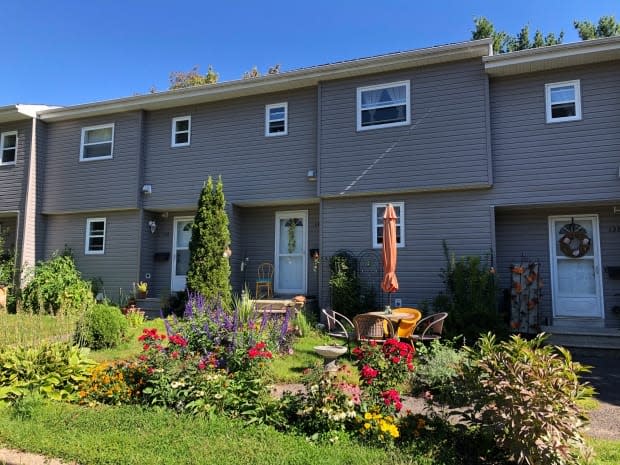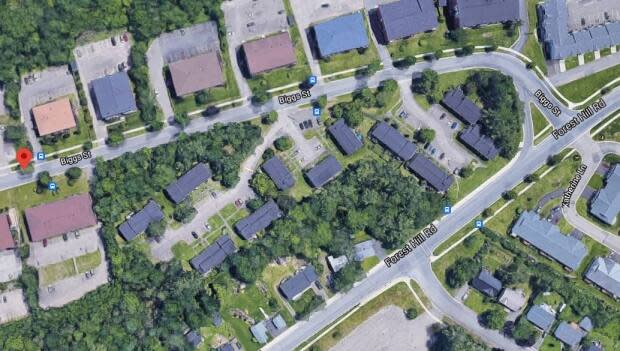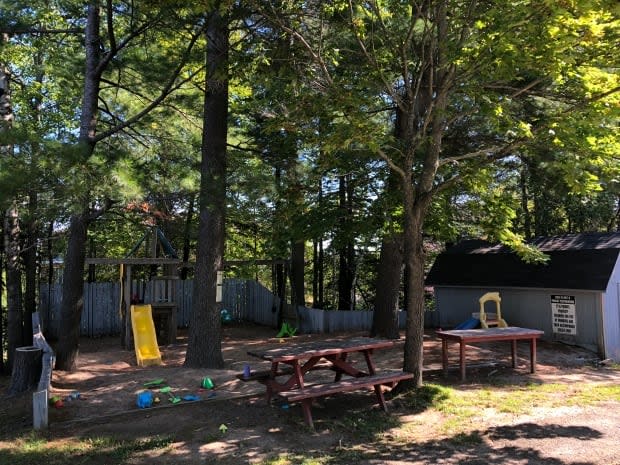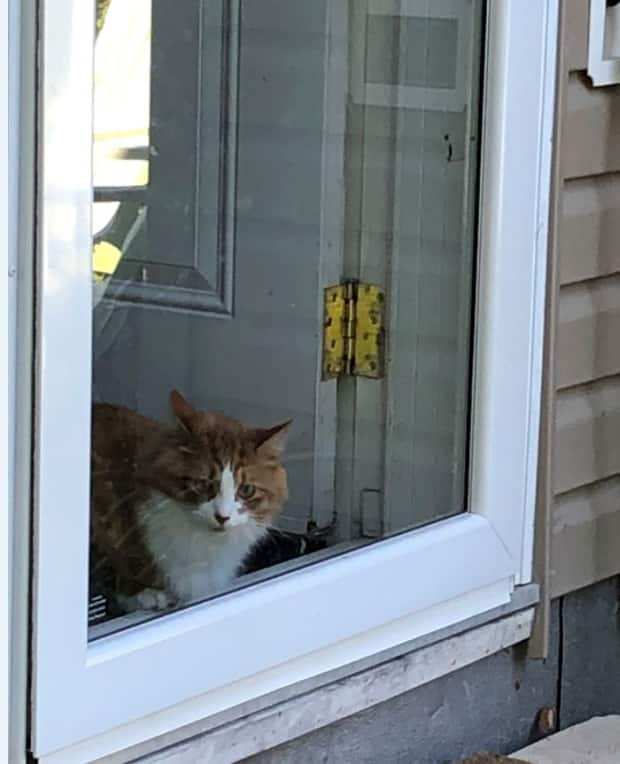Inside Fredericton's Pine Valley Co-operative housing

In the heart of an established neighbourhood in southeast Fredericton, nestled between mature trees, single-family homes and large apartment buildings, is a quiet, little housing development, where the going rate for three-bedroom townhouses is $680 a month.
Members of the Pine Valley Housing Co-operative and housing advocates say more places like this could help address a shortage of affordable homes across the province.
The average rent for a two-bedroom unit in New Brunswick was $892 last year.
By many accounts, rents have increased much more in the past year.

And incomes have not kept pace.
More than a third of New Brunswickers are spending more than 30 per cent of their income on housing, said Aditya Rao, one of the organizers of the New Brunswick Coalition for Tenants' Rights. That's considered "unaffordable."
"Non-market solutions," such as co-ops, are crucial, said Rao.
Everything housing co-op members pay goes into maintenance and upkeep, he said. And any time rent goes up, you know exactly where the money is going.
"We haven't had a significant housing charge increase in a very long time," said Larry Collicott, chair of the Pine Valley finance committee.

"And we don't project to have any."
Collicott has been a member of Pine Valley for 26 years and finance chair for the last five.
The mortgage on its 11 buildings was paid off last year, he said.
Pine Valley is laid out like many provincial subsidized housing projects. It's well-maintained and tidy. Some residents have flowers or vegetable gardens in their front yards.
Most of its 39 units are two-storey and three-bedroom, but several are larger, or smaller or more accessible.

"I like living here a lot," said Collicott, who raised two children at Pine Valley.
"There's a sense of community. There's a sense of involvement. You know your neighbours. … It's a safe, family-friendly, diverse environment."
"I don't foresee leaving here. This is home."
Pine Valley was built in the 1980s under a federal government program that no longer exists.
None of the original members are still there, said Collicott, but six member families now have adult children who have moved into their own units — meaning, they grew up there and liked it well enough that they wanted to stay.
Residents have a range of income levels, he said, and come from all over the world.

Anyone who wants to move in has to fill out an application and go through a screening process.
There's an interview, a home visit, a reference check and, currently, about a five-year wait.
Single mom Victoria Mitham considers herself lucky to have found a space quickly in 2019.
Her three daughters, aged 5, 10 and 11, live with her at Pine Valley part-time and she's made some friends in the neighbourhood.
"It's great," she said.
The cost is "super affordable," and her unit is conveniently located across from a playground.

"I looked into places before I moved in here and the price of living with three kids was $1,400 a month. And that was two years ago. I can't afford that and I have a decent job."
All members are expected to pitch in to help manage and maintain the co-op, said Collicott, but it's "not a huge amount of effort."
Committees meet every couple of months or more often if they have something to deal with, like hiring a contractor to replace roofs, or formulating the annual budget.
Some of the other committees plan social events and manage subsidies.
Pine Valley has its own subsidy program for members who are experiencing temporary financial difficulty. It's not affiliated with N.B. Housing.

But the Social Development Department, which has regulatory oversight of co-operatives, does help them set policies.
There's a lot of flexibility in the co-op form, said Rao.
He grew up in co-op housing in India and later lived in the Sandy Hill Housing Co-operative in Ottawa.
Similar to Pine Valley, it was made up of duplexes and triplexes.
But another one in Ottawa — the Dalhousie Non-Profit Housing Co-operative — is made up of a number of separate homes interspersed among other properties over several city blocks.

If there was a dedicated government funding stream available, said Rao, houses in downtown Fredericton, for example, could be purchased by community groups and turned into co-ops, as they became available.
"It's democratic. It's community-owned. It's community-managed. The only downside is maybe sometimes you disagree with your fellow co-operative members and maybe you're mad at each other for a little while."
Some people have moved out of Pine Valley over the years, said Collicott, but many later told him they wished they hadn't.
"There are so many positives," he said. "We are just not doing enough of it."
According to the Co-operative Housing Federation of Canada, there are 14 housing co-operatives across New Brunswick, with a total of 830 units.

 Yahoo Finance
Yahoo Finance 